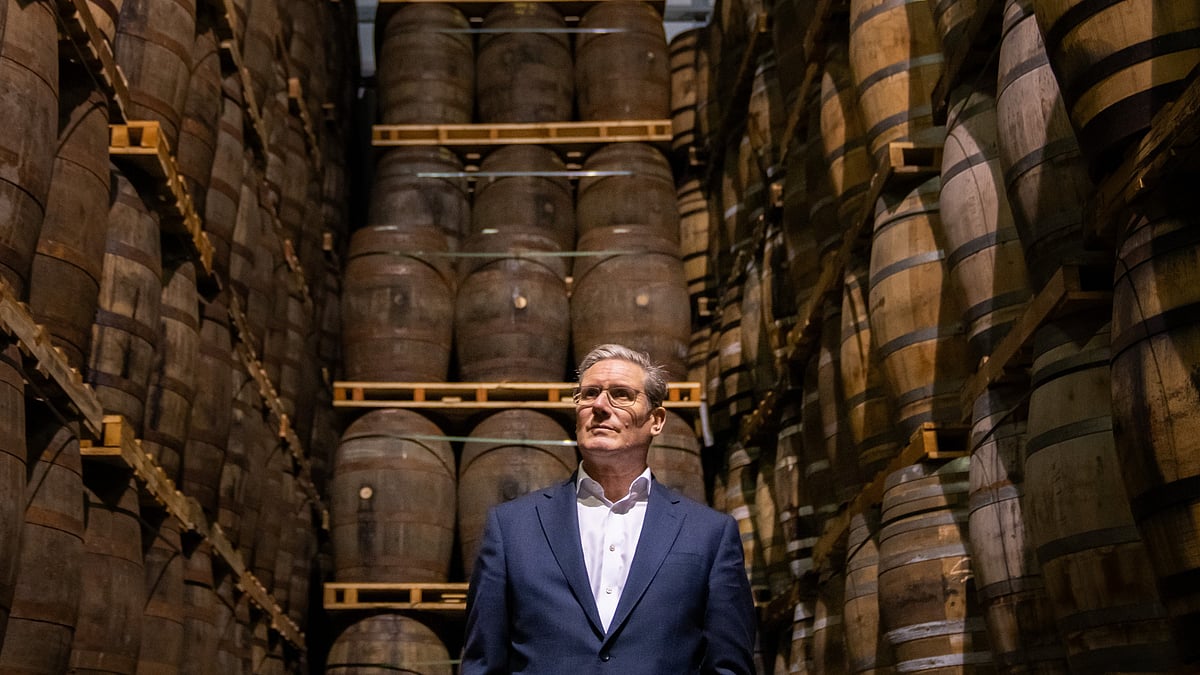Business
UK–India FTA “unparalelled” opportunity, says Keir Starmer
British Airways and Scotch whiskey expected to be among the biggest beneficiaries — and benefits! — from the bilateral trade talks

British prime minister Keir Starmer, beginning his first official trip to India since taking office, described the trade prospects unlocked by the India-UK Free Trade Agreement as “unparalleled”.
Starmer highlighted: “It’s not just a piece of paper, it’s a launchpad for growth.
“With India set to be the third biggest economy in the world by 2028, and trade with them about to become quicker and cheaper, the opportunities waiting to be seized are unparalleled.”
The last UK–India agreement, signed in July 2025, is forecast to double bilateral trade by 2030 and entails significant advantages for flagship British industries, especially the whiskey sector and aviation services like British Airways.
On India’s side, it reduces India’s average tariff on British products from 15 per cent to 3 per cent, making it much easier for British companies — from soft drinks and cosmetics to medical devices and cars — to enter the Indian market.
A key beneficiary is British Airways, represented by CEO Sean Doyle in the 125-member delegation accompanying Starmer — and Doyle is expected to play a pivotal role in further talks here in India.
“The free trade agreement with India will boost economic momentum between our two countries and British Airways really sits at the centre of that activity, acting as an enabler for increased trade,” Doyle claimed.
Doyle also pointed out the airline’s historic ties to India and its strong role in connecting Asia, the UK and the North American continent, emphasising “there’s a lot to be excited about for our two connected economies”.
Meanwhile, on the other side, Manchester Airport is set to add a new direct Delhi flight by IndiGo.
The major winners also include the UK’s whiskey industry, with expectations of adding 190 million pounds a year from India to the Scottish economy.
Published: undefined
The FTA slashes tariffs on Scotch whiskey from 150 per cent to 75 per cent, with a further reduction to 40 per cent over the next decade, instantly making British whiskey more competitive in India and opening up a larger premium market for distillers such as Diageo (who admittedly already have a strong presence here — but are seen as largely ‘too premium’, special-occasion-only for much of the massive Indian middle class).
London-based authorities anticipate this FTA being a transformational one for the liquor industry, giving UK brands a clear “advantage over international competitors” in the Indian market.
From Diageo’s perspective, this may be the compensatory pound of flesh the PM owes after allegedly stiffing them in the 2024 budget. Last winter, Nuno Teles, MD of Diageo GB, was reported as saying: “On the campaign trail, Keir Starmer pledged to ‘back the Scotch whiskey industry to the hilt’. Instead, the government has broken this promise and slammed even more duty on spirits.”
Starmer on this landmark visit is accompanied by representation from other British business icons — including Rolls Royce, British Telecom and the London Stock Exchange.
According to the official UK trip briefing, ‘following the signature of the landmark UK–India trade deal in July, which will lower tariffs on British goods being imported into India, the ‘door is now open’ for British businesses to ‘turbocharge’ their trade with one of the fastest growing economies in the world’.
Published: undefined
Starmer is also expected to discuss with PM Modi details of the two nations’ digital, AI, telecom and defence cooperation, as the agreement’s scope extends beyond goods into investment, services, education, and science and technology collaboration.
UK’s business and trade secretary Peter Kyle summed up the mood: “We’ve shown there is no limit on our ambition to grow trade with India... in less than a year we’ve gone from restarting talks on a deal, to bringing 125 brilliant business leaders to its commercial capital.”
With India–UK supply chains now poised for rapid expansion — and India constrained by Donald Trump’s massive tariff burdens to add new markets of its own — the Starmer government has made it clear that the new trade pact gives British exporters and service providers prime access to “a huge and ever-growing market”, from whiskey to aviation to advanced tech.
It will be interesting to see what more India may receive, besides the blessing of good Scotch, presumably cheaper.
Published: undefined
Follow us on: Facebook, Twitter, Google News, Instagram
Join our official telegram channel (@nationalherald) and stay updated with the latest headlines
Published: undefined